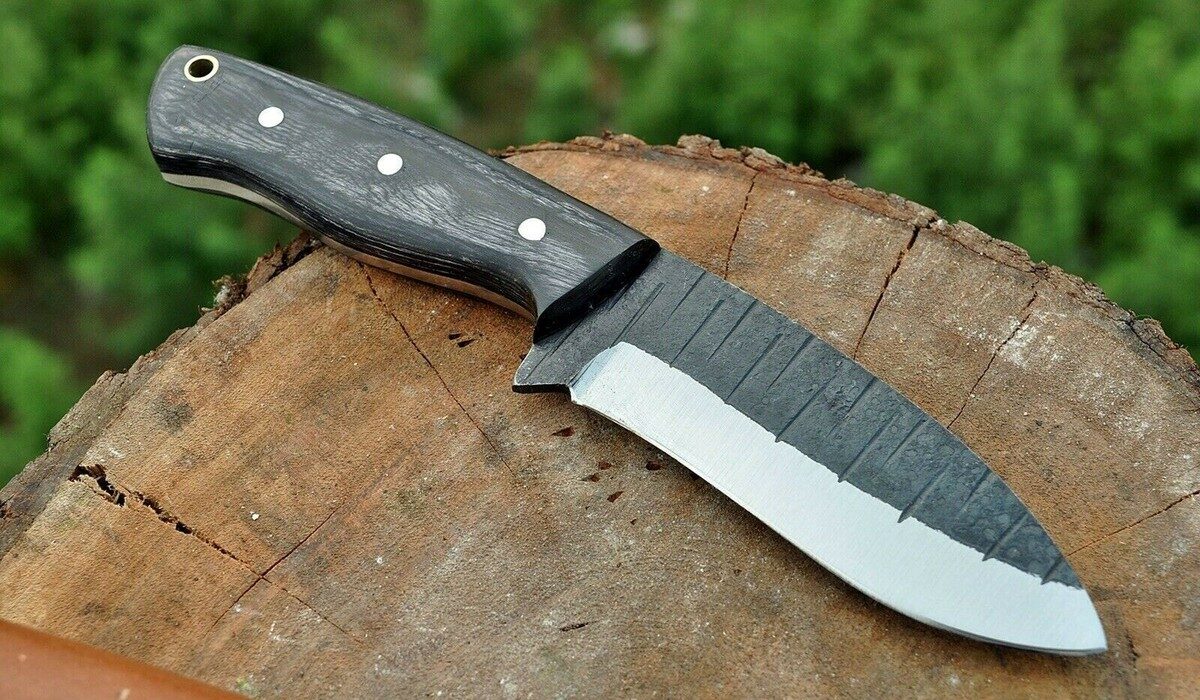When it comes to maintaining the sharpness of your beloved knives, selecting the right sharpening tool is crucial. For kitchen professionals and enthusiasts alike, understanding the nuances of diamond vs. ceramic sharpening rods can make all the difference in ensuring your cutting tools are at their best. In this article, we will delve into the key differences and advantages of these two popular sharpening options.

Understanding the Basics
Before diving into the specifics, it is essential to understand what diamond sharpening rods and ceramic sharpening rods are. Diamond rods are coated with diamond particles, known for their hardness and efficiency in sharpening. On the other hand, ceramic rods are made from high-quality ceramic materials, which are excellent for honing and maintaining sharp edges.
Comparative Features
1. Sharpening Efficiency
One of the primary considerations when choosing between diamond and ceramic rods is sharpening efficiency. Diamond rods are known for their ability to quickly sharpen dull blades. This is due to the hardness of diamond particles, which makes them highly effective at removing metal from the knife edge. In comparison, ceramic rods are more suited for honing and maintaining sharpness, rather than heavy-duty sharpening.
2. Durability and Longevity
When it comes to durability, diamond sharpening rods generally have a longer lifespan due to their robust construction. However, with proper care, ceramic rods can also last for a significant amount of time. It’s important to note that ceramic rods are more prone to breakage if dropped, whereas diamond rods are more resilient.
3. Versatility
Diamond rods offer versatility as they can handle a wide range of blade types, including high-carbon and stainless steel knives. This makes them an excellent choice for kitchen professionals who work with various knives. Conversely, ceramic rods are best suited for fine honing and maintaining sharp edges on softer blades.
Practical Applications
4. Kitchen Use
In a professional kitchen setting, the choice between diamond and ceramic sharpening rods often depends on the specific requirements of the cook. For chefs who require quick and efficient sharpening of knives, diamond rods are the preferred choice. However, for those who prioritize edge maintenance and honing, ceramic rods are ideal.
5. Outdoor and Survival Knives
For outdoor enthusiasts and survivalists, carrying a reliable sharpening tool is essential. In such scenarios, diamond sharpening rods are favored due to their ability to handle rugged and highly durable knife blades. The versatility of diamond rods makes them suitable for a variety of outdoor and survival knives. [Explore types of knives](https://nobliecustomknives.com/types-of-knives/)
6. Precision Work
For precision work, such as fine woodworking or intricate culinary tasks, the choice between diamond and ceramic rods can influence the outcome. Ceramic rods excel in providing a finely honed edge, making them ideal for tasks that demand precision and accuracy.
Maintenance and Care
7. Cleaning Diamond Rods
Maintaining diamond sharpening rods is relatively straightforward. They can be cleaned with water and a mild detergent to remove any metal shavings that accumulate during the sharpening process. Regular cleaning helps maintain their efficiency and prolongs their lifespan.
8. Cleaning Ceramic Rods
When it comes to ceramic rods, a gentle approach is necessary. They should be cleaned with a non-abrasive sponge and mild soap to prevent damage. Avoid using harsh chemicals or abrasive materials, as these can compromise the integrity of the ceramic surface.
9. Storage Tips
Proper storage is key to ensuring the longevity of both diamond and ceramic rods. Diamond rods should be stored in a dry and cool place to prevent rusting. Similarly, ceramic rods should be stored in a safe location where they are less likely to be accidentally dropped or damaged.
Cost Considerations
10. Price Range
The cost of diamond vs. ceramic sharpening rods can vary based on brand, quality, and size. Generally, diamond rods tend to be more expensive due to the cost of diamond particles used in their construction. However, they offer excellent value for those seeking efficient sharpening.
11. Value for Money
In terms of value for money, both diamond and ceramic rods have their advantages. Diamond rods provide rapid and effective sharpening, while ceramic rods offer excellent honing capabilities. The choice ultimately depends on individual needs and preferences.
Conclusion
In conclusion, the decision between diamond vs. ceramic sharpening rods hinges on various factors, including sharpening efficiency, durability, versatility, and personal preferences. Diamond rods are ideal for those who require fast and effective sharpening, while ceramic rods excel in honing and maintaining sharp edges. By understanding the strengths of each option, kitchen professionals can make informed choices that suit their specific needs. For more insights on blade maintenance, visit [blade edge retention techniques](https://knivesgenius.com/blade-edge-retention-techniques/). Additionally, those interested in specific knife uses can explore [fixed blade knife for hiking](https://knivesgenius.com/fixed-blade-knife-for-hiking/), [fixed blade knife for fishing](https://knivesgenius.com/fixed-blade-knife-for-fishing/), and [fixed blade knife for military use](https://knivesgenius.com/fixed-blade-knife-for-military-use/).

FAQs
What is the difference between diamond and ceramic sharpening rods?
Diamond rods are coated with diamond particles for efficient sharpening, while ceramic rods are made from ceramic materials and are ideal for honing and maintaining sharp edges.
Which sharpening rod is best for kitchen knives?
For quick and effective sharpening, diamond rods are preferred. For honing and maintaining sharpness, ceramic rods are ideal for kitchen knives.
Are ceramic rods more prone to breakage than diamond rods?
Yes, ceramic rods are more fragile and prone to breakage compared to diamond rods, which are more resilient.
This article contains affiliate links. We may earn a commission at no extra cost to you.


